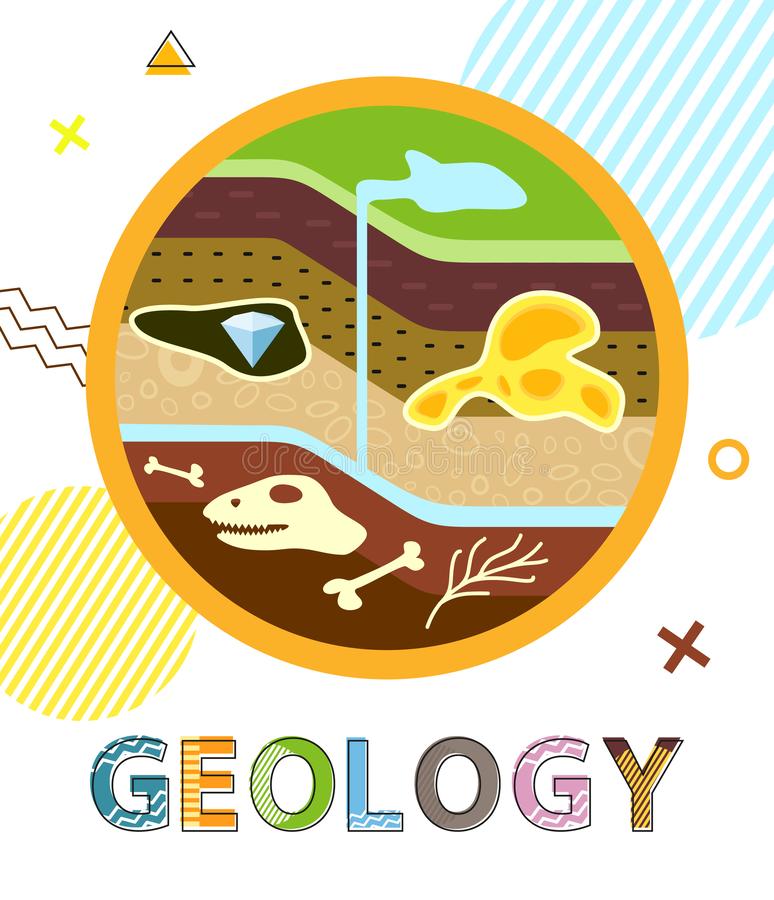Mon-Sat 9am-7pm








Nowadays, a career in Geology is gaining a lot of popularity. It is emerging as a career that opens the doors to a plethora of opportunities for people aspiring to become Geologists. It is the branch of science that deals with the study of the earth, its environment, history, minerals, etc. A scientist who studies the earth's crust to obtain an accurate picture of its structure, history, and composition is termed a Geologist. A Geologist studies the composition of the earth, assesses the natural disasters and their effects on the environment, explores areas rich in under-water resources, oil, natural gas, and minerals, and determines the quality of soil by conducting geochemical and geophysical tests.
The main function of Geologists is to understand the history of our planet and how its materials, structures, processes, and organisms have changed over the period of time. They perform their job by making geologic maps and charts, analyzing aerial photographs, rock samples, and other data sources to locate deposits of natural resources, preparing written scientific reports, and conducting laboratory tests on samples collected in the field. Overall, Geologists play a vital role in exploring mineral wealth and natural resources.

There are some of the most sought-after jobs profiles in the field of Geology. Geologists can work for private industries, the federal government, museums, colleges, and universities. To make a career as a Geologist, aspirants can target the following Geologist job profiles:
Geological Technologists: Their job is to conduct or direct geological or geophysical surveys and prospecting field trips, assist engineers and geologists in the evaluation and analysis of petroleum and mineral reservoirs. They also prepare/supervise the preparation of rock, mineral, or metal samples and perform physical and chemical laboratory tests.
Engineering Geologist: Their job is to identify and deal with geological factors affecting engineering works. They consult geological maps and aerial photographs to advise on site selection and oversee the progress of specific contracts. They also assess the integrity of soil, rock, groundwater, and other natural conditions prior to major construction projects.
Geological Technicians: The job of a Geological Technician is to participate in geological or geophysical surveys, prospecting field trips, and environmental audits and operate and maintain geophysical survey and well-logging instruments and equipment.
Geochemists: They analyse the age, nature, and components of rock, minerals, soil, and other environmental samples, map specific geochemical areas for research and analysis and provide support and recommendations to mainstream geologists.
Geophysicist/Field Seismologist: They are responsible for controlling the quality of the seismic data collected and interpreting it in order to create maps of the build-up of hydrocarbons. They design, test, modify and repair seismic equipment and compile charts and reports.
Geoscientists: They are involved in interpreting geophysical, geochemical, and geological data to develop models of the subsurface of the earth. They collect information in the field, from seismic and well data from other sources, and monitor the acquisition of data to ensure consistent quality. Moreover, they implement new technologies in geological modeling and seismic processing.
Hydrogeologist: Hydrogeologists interpret technical data and information from maps and historical documents, to build a conceptual model of groundwater flow and quality. They undertake fieldwork and site visits for investigative and monitoring purposes and apply their knowledge of fundamental geology to develop an understanding of how rock types and structures in an area impact groundwater occurrence and movement.
1. Undergraduate courses
2. Postgraduate courses
3. There is also a Doctoral Course available for Geologists, in which one can do a Ph.D. in Geology.
Specializations available in Geology:
Here are the various specialities from which you can choose the one which best suits your interest:
What are the employment opportunities?
The salary of a Geologist depends on various factors such as proficiency, level of experience, industry, geographic location, and education and training. Following are some relative salary figures for different job profiles of a Geologist:
|
Job Profile |
Starting Salary per annum (in INR) |
Mid Level Salary per annum (in INR) |
Senior Level Salary per annum (INR) |
|
Geologist |
2,25,153 |
4,93,325 |
12,38,268 |
|
Geophysicist |
2,95,898 |
6,60,000 |
24,19,023 |


Call us at +91 9205084085, Monday - Friday, 9 am - 7 pm


